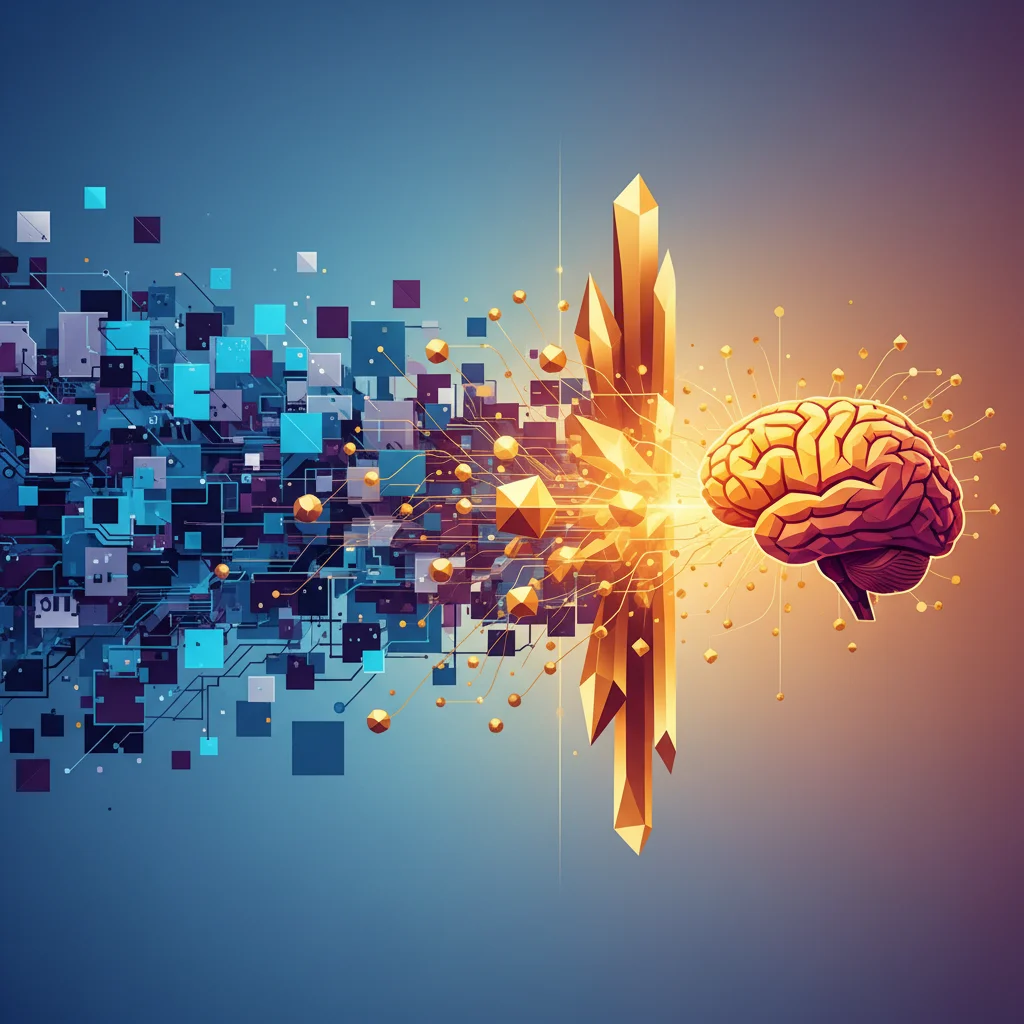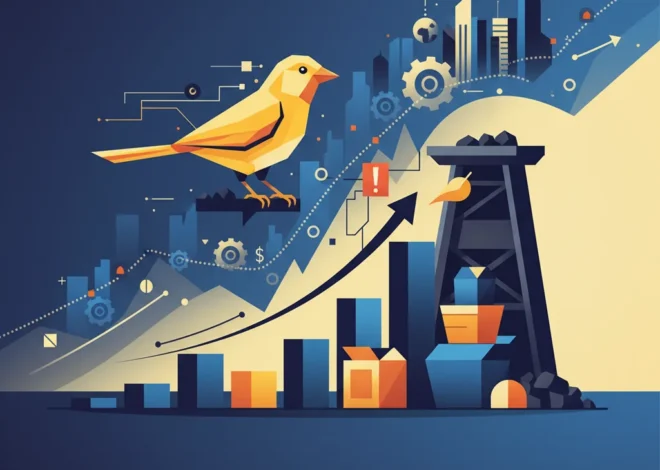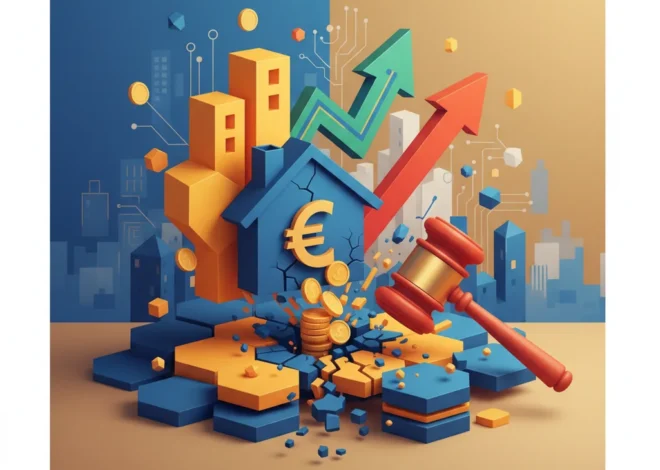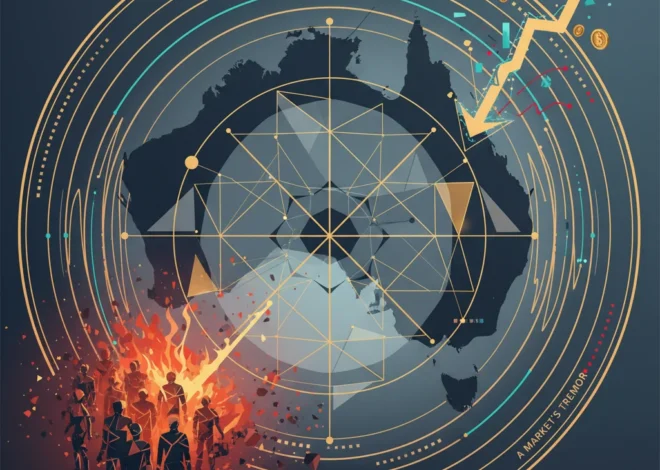
The Scarcity Premium: Why Human Insight is the New Gold in an AI-Driven Economy
The Dawn of Digital Abundance
We are living through a content explosion. Every day, generative artificial intelligence tools like GPT-4, Claude, and Midjourney are churning out an unprecedented volume of text, images, and code. This digital deluge, once the stuff of science fiction, is now a reality for nearly every industry. In her incisive letter to the Financial Times, Alina Gegamova, Co-founder of Snul Comms, astutely pointed out a fundamental economic consequence of this new reality: “the advent of AI puts a premium on human-created content” (source). This simple observation holds profound implications for the future of business, finance, and investing.
As the cost of producing “good enough” content approaches zero, the basic laws of economics dictate that its value will plummet. When anything becomes infinitely abundant, it becomes a commodity. This isn’t a critique of AI’s power; it’s a recognition of its effect on the market. The true opportunity, therefore, lies not in the flood of synthetic media, but in the increasing rarity and value of what AI cannot replicate: genuine human insight, creativity, empathy, and trust. This is the “Scarcity Premium,” and understanding how to identify, cultivate, and invest in it will be the defining skill for the next generation of business leaders and finance professionals.
The Great Content Deluge: AI and the Economics of Abundance
The scale of AI-driven content generation is staggering. What once required teams of writers, designers, and analysts can now be accomplished by a single person with a clever prompt. According to industry analyst firm Gartner, by 2025, a stunning 30% of outbound marketing messages from large organizations will be synthetically generated. This wave of AI-produced material is fundamentally reshaping the information landscape and the very economics of knowledge work.
In classical economics, scarcity drives value. Diamonds are valuable because they are rare; water in a desert is priceless for the same reason. Generative AI inverts this model. It creates a world of information abundance, where market reports, stock summaries, and even basic economic analyses can be produced instantly and at scale. While this democratizes access to information, it also creates a new problem: a crisis of authenticity and a devaluation of generic content. In this new economy, the question shifts from “Can we produce this?” to “Is this real, is it trustworthy, and does it offer a unique perspective?”
Applying the Scarcity Premium to Finance and Investing
Nowhere is this shift more critical than in the world of finance, where trust and insight are the ultimate currencies. The financial technology (fintech) revolution has already shown how automation can streamline operations, but the generative AI wave goes a step further, touching the core of financial analysis and decision-making.
Financial Analysis and the Stock Market
AI algorithms can screen thousands of stocks, analyze decades of financial data, and process earnings reports in seconds. This is an invaluable tool for quantitative analysis, removing human bias and uncovering patterns invisible to the naked eye. However, this is rapidly becoming table stakes. The scarcity premium lies in the qualitative. An AI can tell you a company’s price-to-earnings ratio, but it can’t truly understand the visionary leadership of its CEO, the subtle shifts in consumer culture that will impact future sales, or the geopolitical tensions that create unforeseen risks. This is the domain of the seasoned human analyst—the ability to weave a narrative, to make a contrarian bet based on gut feeling backed by experience, and to understand the “why” behind the numbers on the stock market.
Fintech, Banking, and Client Trust
In banking and financial services, AI is powering everything from customer service chatbots to automated loan approvals. This boosts efficiency and lowers costs. Yet, a recent Salesforce report found that 73% of customers are concerned about the unethical use of AI by businesses. The premium, therefore, is on the human touch. An AI can answer basic questions, but a human advisor builds a relationship. They can calm a panicked investor during a market downturn, understand the complex family dynamics behind a wealth transfer, or provide bespoke advice that considers a client’s personal values, not just their risk tolerance. In a world of automated responses, genuine empathy and trusted counsel become a powerful competitive advantage.
How to Identify and Invest in the Human Premium
For investors and business leaders, the key is to look beyond the hype and focus on where true, defensible value is being created. This means shifting focus from companies that simply use AI to those that use AI to amplify their human talent.
A Framework for Evaluation
When analyzing a business in the AI age, consider where it falls on the spectrum of automation versus augmentation. Is it using technology to replace its most valuable people, or to empower them? A company that automates its back-office accounting is being efficient. A company that replaces its entire team of senior strategists with an algorithm is creating a long-term vulnerability. The potential for AI to unlock value in the banking sector alone is estimated to be over $200 billion annually, but this value is realized by augmenting, not just replacing, human expertise.
Here is a comparison of tasks where AI excels versus where the human premium will likely reside in the financial sector:
| Area of Focus | AI-Driven Task (Commoditized) | Human Premium Task (Valuable) |
|---|---|---|
| Investment Research | Screening thousands of stocks based on quantitative metrics (P/E, EPS growth). | Conducting on-the-ground due diligence, assessing management quality, and synthesizing geopolitical risk. |
| Wealth Management | Automated portfolio rebalancing and providing robo-advisory services. | Building long-term client trust, providing complex estate planning, and coaching through market volatility. |
| Trading | High-frequency trading and executing predefined algorithmic strategies. | Developing novel trading theses, managing risk during “black swan” events, and interpreting market sentiment. |
| Customer Service | Answering FAQs and handling routine account queries via chatbot. | Resolving complex, emotionally charged issues and providing high-touch, personalized client relationship management. |
A Turning Tide? Unpacking the UK's Surprise Inflation Drop and What It Means for the Economy
The Road Ahead: Navigating a Hybrid Future
This new landscape is not without its challenges. The primary hurdle will be verification. How do we distinguish authentic human content from sophisticated AI-generated fakes? The rise of deepfakes and AI-powered misinformation campaigns poses a significant threat to financial markets and the broader economy, where trust is paramount. This is where technologies like blockchain may find a new purpose, providing a transparent and immutable ledger to verify the provenance of information and creative work.
Furthermore, the conversation around job displacement must evolve into one of job transformation. Certain roles will be automated, but new roles will emerge for those who can work alongside AI, using it as a tool to enhance their own innate human abilities. The most valuable professionals of the future will be “AI wranglers,” “data storytellers,” and “empathy-driven advisors” who can bridge the gap between machine intelligence and human needs.
The £2.1 Billion Breach: How the Jaguar Land Rover Hack Rewrote the Rules of Financial Risk
Conclusion: The Enduring Value of the Human Element
The AI revolution is not a zero-sum game between man and machine. Instead, it is a powerful clarifying force, stripping away the automatable and leaving behind what is uniquely human. As Alina Gegamova’s letter suggests, the flood of artificial content doesn’t make human creativity obsolete; it makes it more precious. For investors, the goal is to find companies that understand this dynamic. For business leaders, the mandate is to build organizations that nurture it.
In the new economy, the ultimate competitive advantage will not be found in the code of an algorithm but in the character of your people. The ability to think critically, to create originally, to connect authentically, and to lead with integrity—these are the assets that will command the highest premium in a world of digital abundance. The future of finance, and indeed all industries, belongs to those who successfully merge the immense power of financial technology with the irreplaceable wisdom of the human mind.


